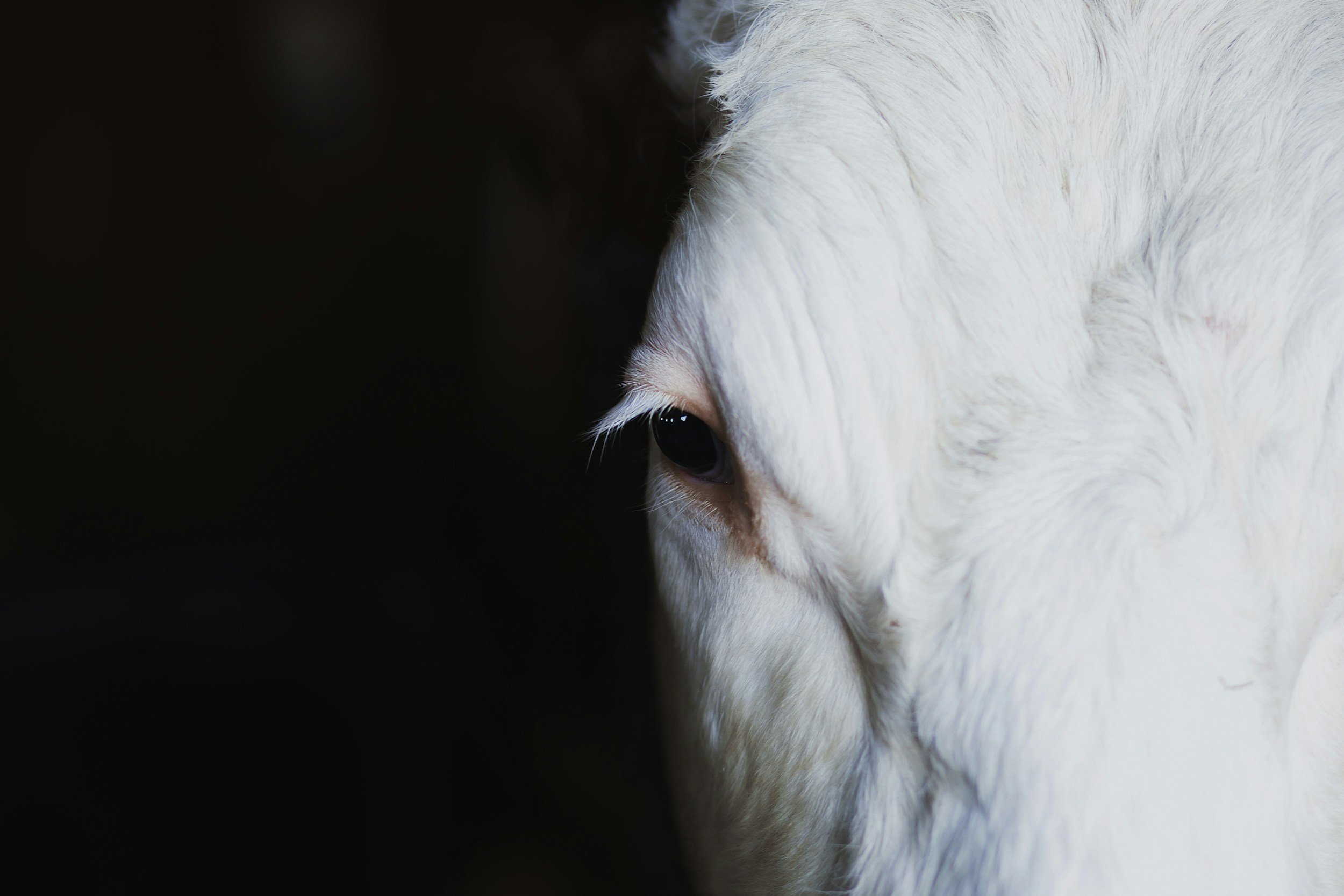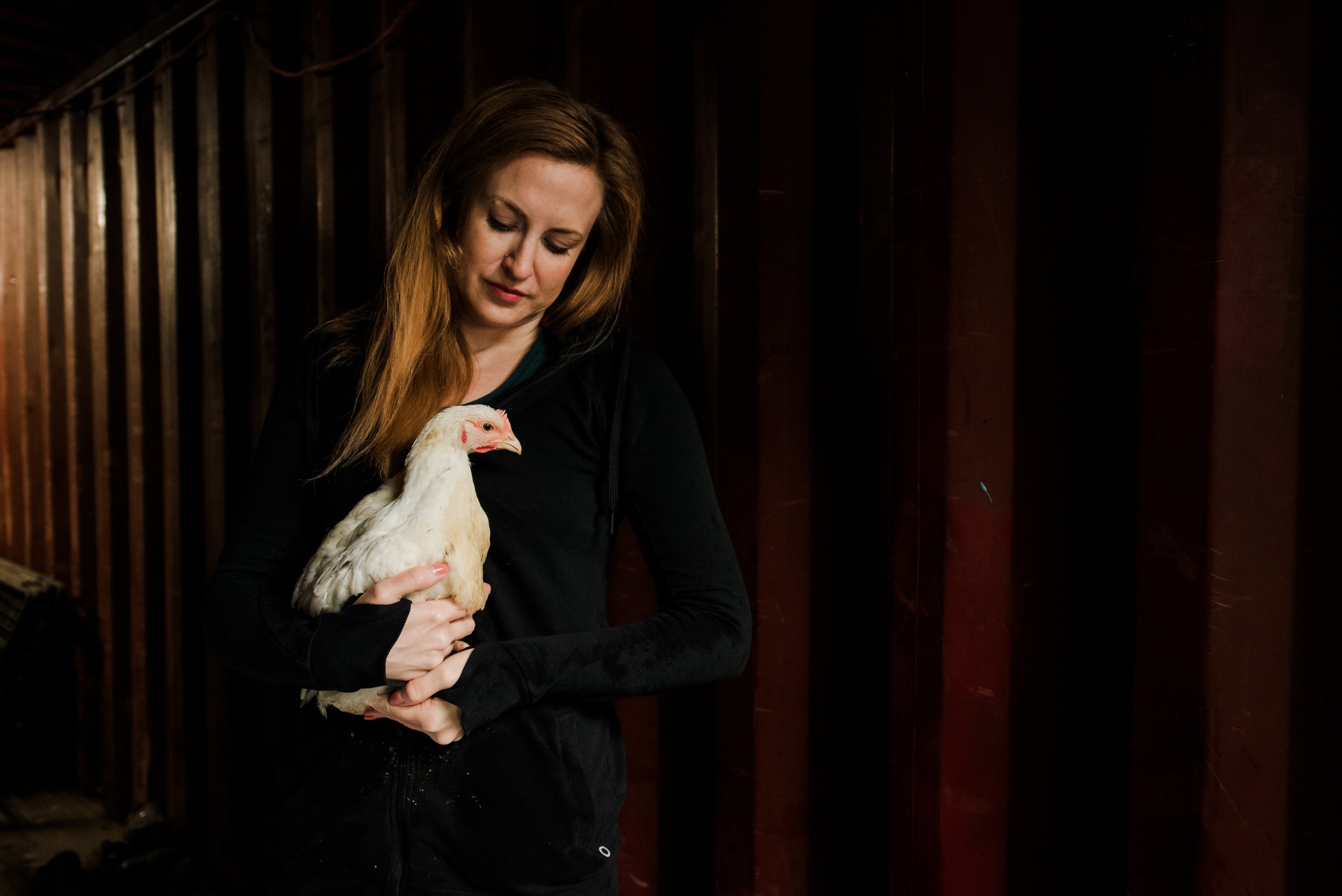
DVA Deep Dives
The Bodhi Project
Bearing Witness to the Suffering of Animals in our Modern Food System
The Bodhi Project (from the Sanskrit and Pali word bodhi - meaning awakening, enlightenment) offers a guided journey towards awakening the heart and bearing witness to the profound truth of animal suffering in the 21st century.
Buddhism is widely known for its teachings on compassion and loving-kindness, which have shaped both popular culture and religious studies. It is often assumed that such teachings naturally extend to a compassionate and benevolent stance toward all sentient beings and the entirety of life. Indeed, many Buddhists are deeply committed to kindness, empathy, and care for all living creatures—from humans to animals, even extending to the smallest insects.
As practitioners of Buddhism, we are taught to bring benefit to all sentient beings, a theme we repeat daily in our practices and prayers. We immerse ourselves in teachings that emphasize the cultivation of essential qualities such as compassion, lovingkindness or loving-kindness, sympathetic joy, and equanimity—the Four Immeasurables or the Four Brahma Viharas —as well as virtues like patience, generosity, discipline, wisdom, meditation, and ethical conduct, encapsulated in the Six Paramitas of the Mahayana and the Ten Paramis of the Theravada.

‘‘I am determined not to kill, not to let others kill, and not to condone any act of killing in the world, in my thinking, and in my way of life.’’
- Thich Nhat Hanh, Vegan Zen Master
Moreover,we commit to the Five Precepts, which form the foundation of our ethical conduct, including vows to refrain from causing harm, killing, stealing, and taking what is not freely given.
For those on the Mahayana path, this commitment is further deepened by the Bodhisattva Vows, wherein we pledge, with full sincerity, to work tirelessly for the liberation and ultimate happiness of all sentient beings, until not a single one remains bound by suffering.
Given this profound commitment to non-harming, it is no surprise that many Buddhist centers maintain strict policies that prevent harm to animals and insects on their premises. This can take many forms—rescuing stray animals, protecting insects during construction, refraining from stepping on insects, caring for companion animals, or creating habitats for wildlife such as birds and amphibians. While much of people’s ordinary focus is on the visible impact on sentient beings that we can witness and alleviate, there are countless other sentient beings whose lives are impacted daily by our consumer choices.
At DVA, our mission is to inform and educate the global Buddhist community about the lesser-known and hidden realities of animal suffering, particularly in relation to food production in the 21st century. By shedding light on these often unseen truths, we aim to empower our fellow practitioners to make informed, compassionate choices that reduce the suffering of sentient beings.
Each year, over a trillion land and sea animals are raised and killed for food, their suffering largely concealed from the public eye. From the heartbreaking plight of dairy cows and their stolen calves to the mass slaughter of male chicks in the egg industry, the scale of suffering inflicted upon animals is staggering. Yet, these realities are carefully hidden from view, shielded by decades of corporate propaganda, vast marketing campaigns, and the widespread myth of “happy farm animals” or “humane organic animal products.”
In fact, many are led to believe that the systemic suffering of animals is simply an unavoidable necessity for human survival—a belief that soothes our conscience and allows us to continue our consumer habits without question. As a result, the vast majority of people—nearly 8 billion worldwide—remain largely unaware of the true cost of their actions. Hidden in the shadows of industrial agriculture lies an unfathomable toll of destruction and suffering, one that is unparalleled in its scope and magnitude, and yet it is a toll inflicted by human beings upon their fellow sentient beings.

The challenge before us is clear: to awaken to the truth of this suffering, to open our hearts, and to transform our actions in alignment with the compassion and wisdom that define the Buddhist path.
Only through this awakening can we hope to alleviate the vast and hidden suffering that continues to unfold in the world around us.
If you would like to open your eyes and bear witness to truth, begin your journey of awakening by clicking on an animal species below to learn about their lives in modern animal agriculture.
The Buddha’s Story of Awakening as Inspiration
As Buddhists, we are taught to develop compassion and in Mahayana cultivate bodhicitta, the mind of awakening, for the benefit of all beings. Bearing witness to the realities of suffering in modern animal agriculture is an essential part of deepening our practice and understanding of the Four Noble Truths—especially the truth of suffering (dukkha). The Buddha’s own journey to enlightenment began with his exposure to the four sights: an old man, a sick person, a corpse, and a wandering ascetic. Each of these sights awakened Siddhartha Gautama to the impermanence of life and the inevitability of suffering. His father, King Suddhodana, had tried to shield him from these truths, wanting to protect him from the harsh realities of the world. But Siddhartha’s awakening came precisely because he confronted suffering head-on, realizing that it was through understanding suffering and seeking its alleviation that true liberation could be found.
In the same way, by confronting the suffering of animals in factory farms and other exploitative practices, we can open our hearts to the profound reality of dukkha, not just in human lives, but in all sentient beings.
When Siddhartha saw the suffering in the world—the ravages of aging, illness, and death—he questioned the sheltered existence his father had provided. He asked his father, "Why have you lied about the existence of suffering, sickness, poverty, old age, and death?" This moment of questioning reveals the power of confronting the truth. Siddhartha’s decision to leave the palace and embark on a path of spiritual awakening was motivated by a deep sense of responsibility to end suffering—not only for himself but for all beings. His father's love, while protective, had become a prison, one that prevented Siddhartha from seeing the full scope of suffering that pervades the world. Similarly, the compassionate impulse in our own hearts—our desire to avoid witnessing suffering or to shield ourselves from uncomfortable truths—can often be a form of aversion and attachment that keeps us from the deeper awakening needed to alleviate suffering. In order to truly embody compassion, we must confront the suffering in the world, including the suffering of animals, and allow it to awaken our hearts to the interconnectedness of all beings.
In modern times, animal agriculture represents a vast and often hidden source of suffering for billions of sentient beings. Just as Siddhartha could not remain in the comfort of his palace while the world outside was filled with suffering, we cannot remain indifferent to the pain inflicted on animals for the sake of human consumption. Our compassion must extend beyond humans to include all sentient beings, recognizing that their suffering is no less real than our own. Practicing compassion means developing a heartfelt intention to alleviate the suffering of all beings, and this requires confronting the realities of how animals are treated in modern agriculture, a task which is at the heart of our mission at DVA. We invite you to share in this brave journey - for the sake of each individual animal.
We may not change the whole world by being vegan, but the whole world changes for each individual animal that is spared. And saving even just one life, is a practice worthy of our time and effort.


Resources to Dive Deeper: Animal Rights & Welfare
-
Animal Liberation, Peter Singer, 1975
Bleating Hearts: The Hidden World of Animal Suffering, Mark Hawthorne, 2013
How to Argue with a Meat-Eater and Win Every Time, Ed Winters, 2020
This Is Vegan Propaganda: (And Other Lies the Meat Industry Tells You), Ed Winters, 2021
Ethics Into Action: Henry Spira and the Animal Rights Movement, Peter Singer, 1998
Why We Eat Pigs, Love Dogs, and Wear Cows, Melanie Joy, 2009
Animal Equality, Joan Dunayer, 2004
The Animal Activist's Handbook: Maximizing Our Positive Impact in the World, Matt Ball & Bruce Friedrich, 2011
Bleating Hearts: The Hidden World of Animal Suffering, Mark Hawthorne, 2015
Eating Animals, Jonathan Safran Foer, 2009
Farm Sanctuary: Changing Hearts and Minds About Animals and Food, Gene Baur, 2008
Green is the New Red: An Insider's Account of a Movement Under Siege, Will Potter, 2011
Every Twelve Seconds: Industrialized Slaughter and the Politics of Sight, Timothy Pachirat, 2011
Mercy For Animals: One Man’s Quest to Inspire Compassion and Save Farmed Animals, Nathan Runkle, 2017
Not As Nature Intended, Rich Hardy, 2014
The Ethics of What We Eat: Why Our Food Choices Matter, Peter Singer and Jim Mason, 2006
-
Dominion, Chris Delforce, 2018
Land of Hope and Glory, Ed Winters, 2017
Meet Your Meat, Bruce Friedrich & Cem Akin, 2002
Speciesism: The Movie, Mark Devries, 2013
Earthlings, Shaun Monson, 2005
Milked, Amy Taylor & Denise Hazlewood, 2021
The Cove, Louie Psihoyos, 2009
The Ghosts in Our Machine, Liz Marshall, 2013
The Last Pig, Allison Argo, 2017
-
Aquatic Life Institute
Legal Impact for Chickens
New Roots Institute
Shrimp Welfare Project
The Humane League
-
Earthing Ed (Instagram - @earthlinged)
@meatcomesfromthepainofanimals












